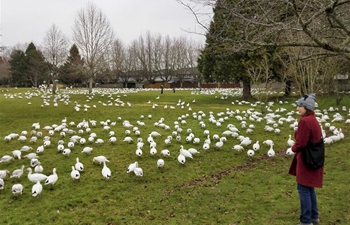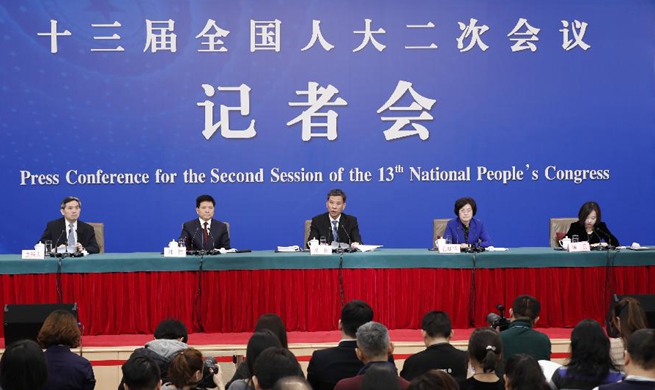HANGZHOU, March 7 (Xinhua) -- When Pan Mei'er first arrived in a hospital in Shangbai, a place known as the "leprosy village" due to the big number of leprosy patients, she was shocked and disturbed.
"They were cheering because someone finally came to their help," Pan says. "I smelled a strong choking smell, and I felt dizzy with a feeling of nausea; later I knew that it was the smell of leprosy-induced ulcer, and I was determined that I should help them with all I could."
Now, 23 years later, Pan has become head of the nursing department in the Shangbai Hospital in Deqing County, of east China's Zhejiang Province. But her dedication to help the leprosy patients has never waned.
Pan has been calling on the public to pay more attention to leprosy sufferers in China.
"I want more public attention for leprosy patients because they need more care, both physically and emotionally," she says.
Leprosy is an infection caused by the bacteria Mycobacterium leprae. It has existed for at least 3,000 years. In Shangbai Village, the disease has impacted many people, with some already disabled due to long-term infection: some have deformed hands, legs and noses, and some have poor eyesight. Early treatment can prevent severe disabilities, Pan says.
In Zhejiang Province, there are about 3,000 patients who survived the disease after medical treatment. Though the disease has been eradicated in most cities and counties, some localities still see cases of infection. Each year, fewer than 20 infections are reported in Zhejiang, and the number is decreasing, Pan says.
Pan came to Shangbai Hospital, hoping she could bring some help to the patients there.
"When I arrived, they were so happy that some even clapped with their barely complete hands," Pan says.
In the hospital, many patients are either far away from their family members, or simply did not get married because of their conditions.
"They are lonely, and many regard me as their daughter," she says. "When it comes to leprosy patients, psychological comfort is as important as medical treatment, because many patients carry a sense of misanthropy."
In the hospital, Pan is in charge of taking care of the patients in their daily lives. She says it is all about "trivial matters."
"For example, some patients have their eyelashes grow backward, so we have to check their eyes and help them pour eyedrops," she says. "Some patients' hands and feet do not sweat at all, so we help put their hands and feet in warm water for 20 minutes every day to remove the dead skin before applying skin oil."
Pan and her colleagues often need to be "mediators" between patients caught in a fight over small things.
"Whenever they have something to share, I am their confidant," she says.
Currently, there are 61 leprosy patients in the hospital, all of them senior citizens with an average age of 73.
"When I first arrived here, there were more than 150 patients, and each time anyone of them passed away, I felt so sad because it just felt like losing a loved one," she says.
Over the years, conditions in the hospital have greatly improved. In the past, dozens of patients had to be crammed in one small ward. Now, each patient has his or her own ward. The hospital offers Chinese acupuncture, massage and moxibustion for treatment. Psychological consultation services are also available.
Pan and her colleagues' experience of treating leprosy patients has been promoted in many localities in the country, and Pan believes that more areas will be able to offer good medical services and care for leprosy patients.
"I hope that more people in our society will get to know and understand leprosy patients," she says. "They are human beings who need love and support, just like us."















